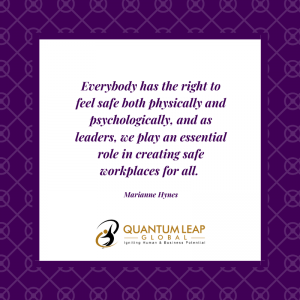Teams are more diverse but not necessarily inclusive

We know from a competitive perspective that recruiting and retaining a diverse workforce in an inclusive environment is essential to being a market leader.
But having diversity doesn’t mean there is inclusion.
We have seen much progress made towards more diverse teams over recent times; however, we are still struggling with inclusion.
For there to be an inclusive organisation, there needs to be psychological safety. Meaning, all people, particularly minority groups, feel safe to bring their whole selves to work and contribute without fear. There needs to be a sense of belonging for all, not just those that are part of the dominant culture.
But how do you know if you have inclusion? Here are a couple of questions you can ask yourself or your staff to get a sense of your level of inclusion:
- Have you ever felt you were the target of a negative stereotype?
- Have you been talked over or ignored in a discussion?
- Have you ever held back from asking a question out of fear?
- Have you braved to challenge the status quo only to have that held against you?
- Have you been made to feel inferior?
Having spent two decades in the corporate world, I can answer yes to all of the above questions throughout my career and regularly hear this from my clients, particularly those from different cultural backgrounds, minority groups and women.
Every person has the right to feel safe both physically and psychologically, and as leaders, we play an essential role in creating safe places for all. The benefits of creating such a space will result in not only a better place where employees want to stay, but you will also see the benefit of better innovation, increased performance and business growth.
As further highlighted by Amy Edmondson’s 20-year study on psychological safety, diverse organisations with psychological safety are more likely to function inclusively because diverse perspectives are more likely to be heard.
At Quantum Leap Global, we partner with leaders to create psychologically safe environments, which is the foundation for high performance, unlocking the collective power of diversity, by creating authentically safe and inclusive work environments where all can thrive.
Acknowledgements Amy Edmondson and Timothy Clark

Leave a Reply
Want to join the discussion?Feel free to contribute!